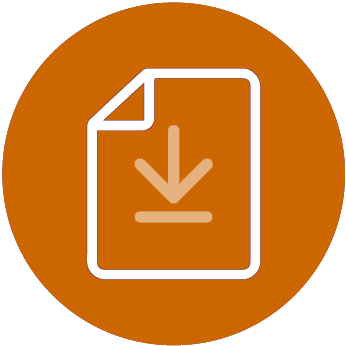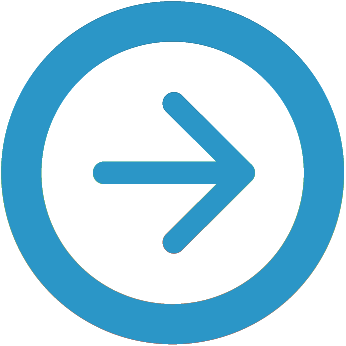BOND developed a participatory methodology between stakeholders (farmers, academia, policy-makers, CSOs, businesses, environmentalists, consumers, etc.) which allows them to undertake a self-analysis of attitudes, constraints and weaknesses. This was the basis for developing the capacity-building tools and methods that can better respond to their needs and aspirations.
The participatory approach allows the farmer organisations to lead a process of economic and social change within their organisation and in the region or in the sector in which they operate. A step-wise approach is followed:
BOND has developed a participatory methodology oriented to foster bonding and bridging processes at territorial level, and adaptable to different contexts. Whether there are no organised groups of farmers or there are consolidated and active groups in a territory, this methodology is useful to build or strengthen bonding processes, and to design or strengthen bridging strategies to foster, through collective action, the empowerment of farmers’ organisations.
The participatory methodology includes different possible paths, depending on the starting point of the process (in terms of organisational level, but also in terms of the force they will drive the process in the beginning). It also includes some cross dimensions that must be considered in every step, and also a non-linear vision of any process.
The following step-wise approach is proposed:
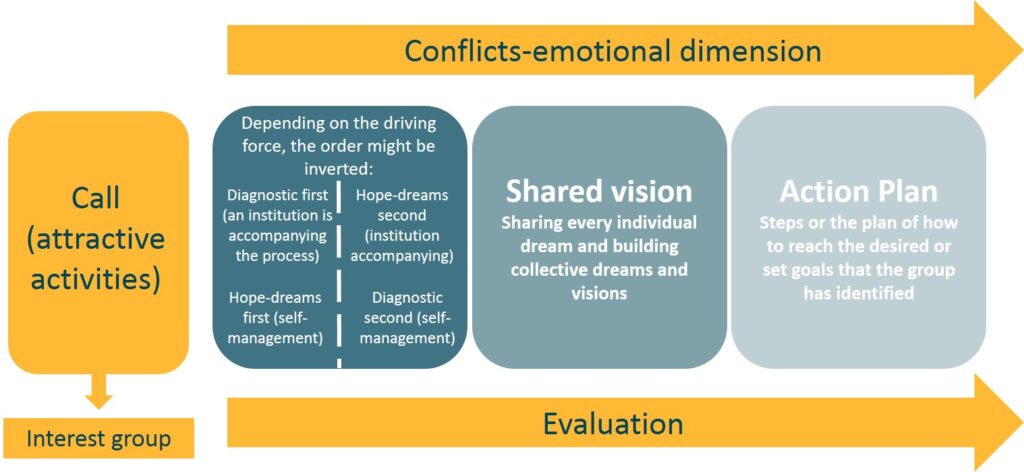
Because the social process is much more than objectives and steps, cross-cutting issues were included in order to take care of the emotional and social dimensions of every bonding and bridging process, which are signalled in white in the next figure.
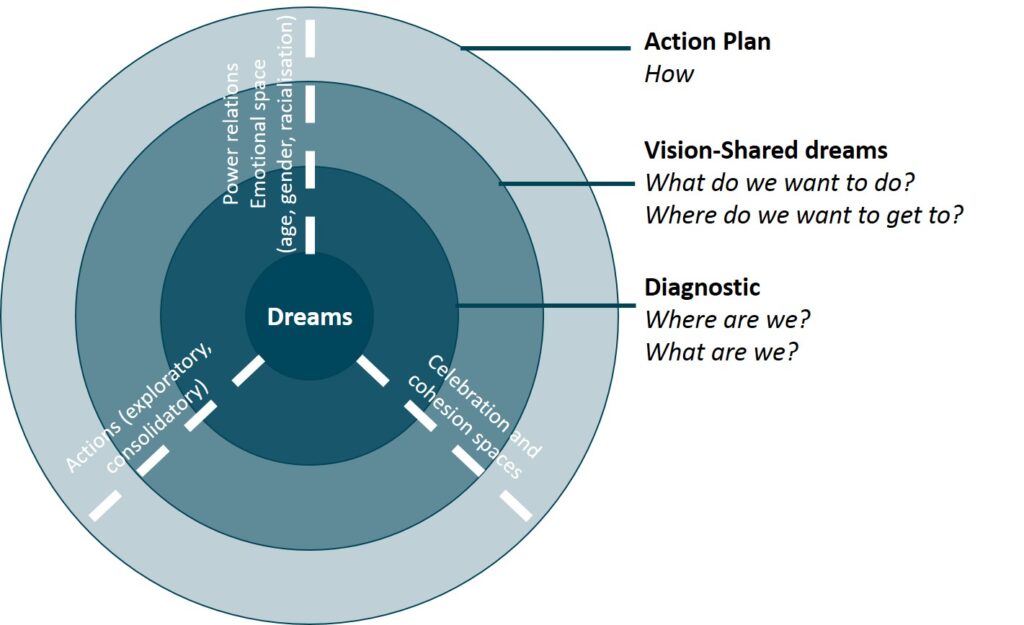
And because the social process is never linear, BOND suggests a complex vision of every step is incorporated in order to adapt the methodological path to the real context and needs of the social group involved. That is, in every step (i.e. at the diagnosis) results included in the other steps (i.e. visions and actions) will emerge naturally, and must be welcomed and incorporated somehow.
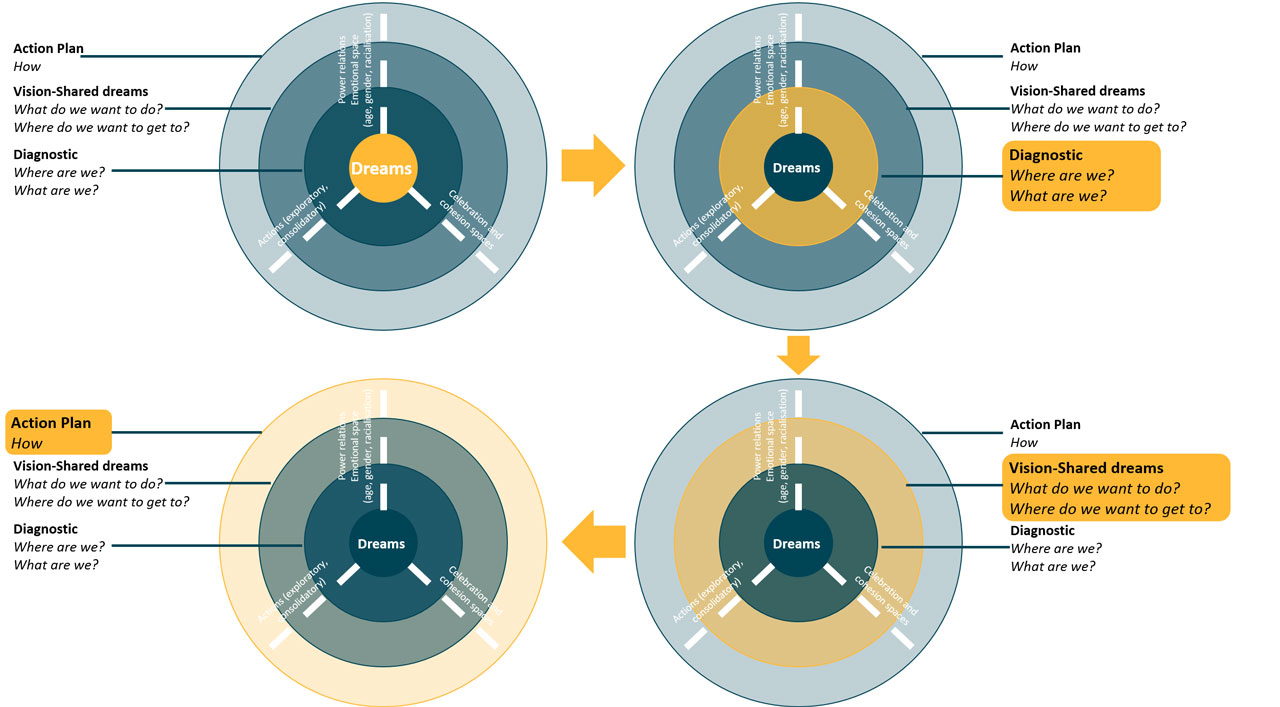
Based in this proposal, during the months of December 2018 and January 2019, BOND has conducted several workshops in 8 different countries. Here, farmers committed and connected through BOND partner organisations undertook a self-analysis of attitudes, constraints, and weaknesses related to collective action. Their results formed the basis for developing the capacity-building tools and methods that can better respond to their needs and aspirations.
The tools implemented during these workshops have helped identify and discuss the attitudes, constraints and barriers to foster collective action in their context, as well as to identify the social arena in which they could design strategies to foster processes of collective action in every country.
The main barriers identified are related to four main issues:
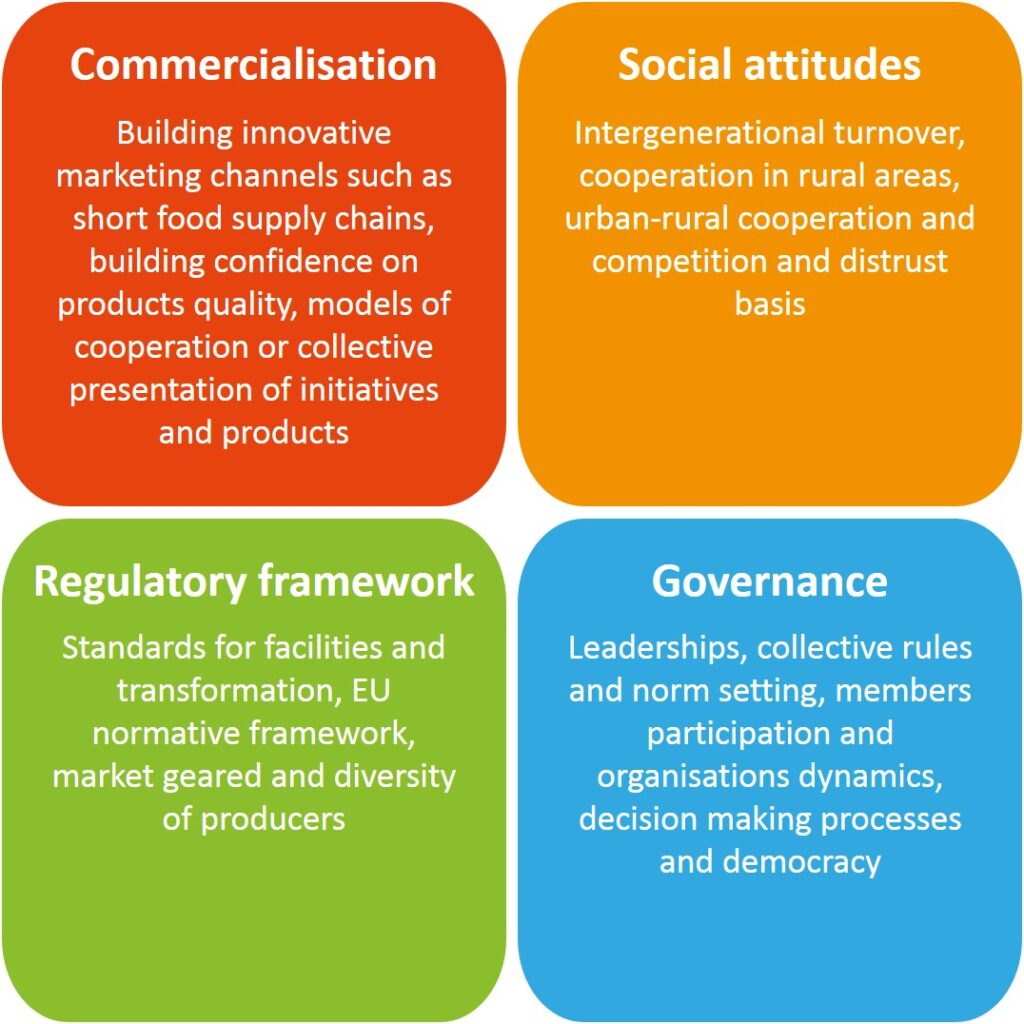
The tools implemented can be found in the following link:

